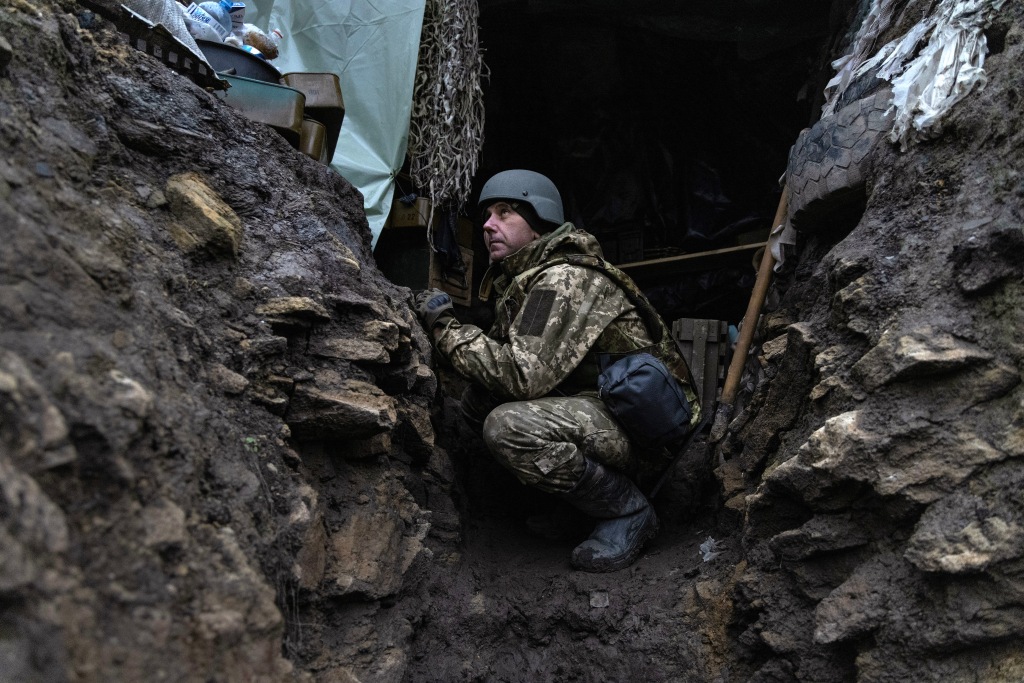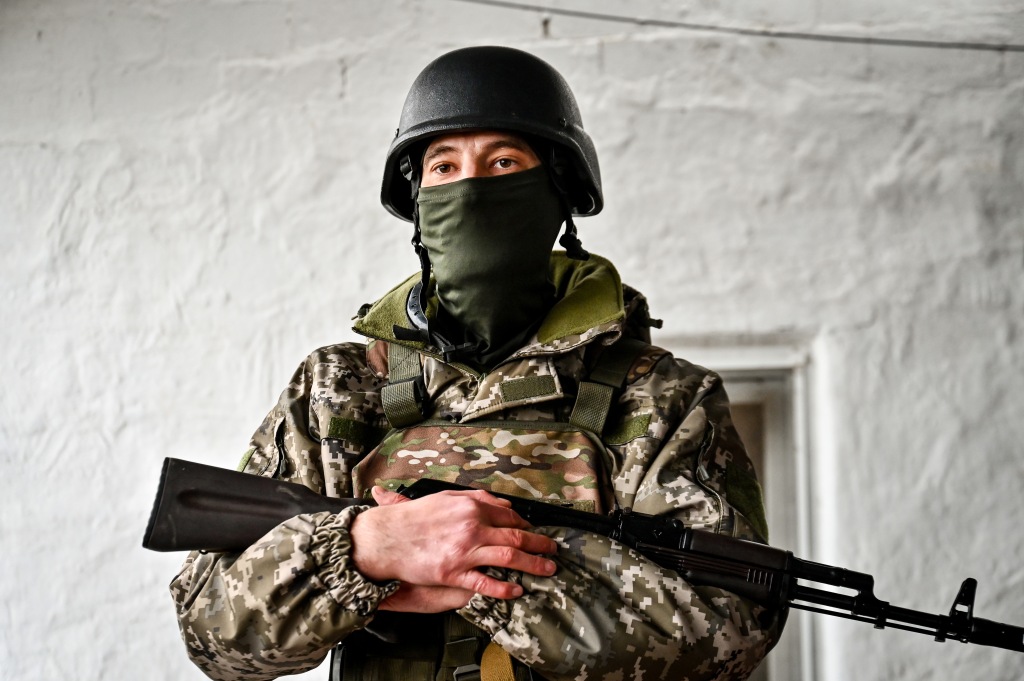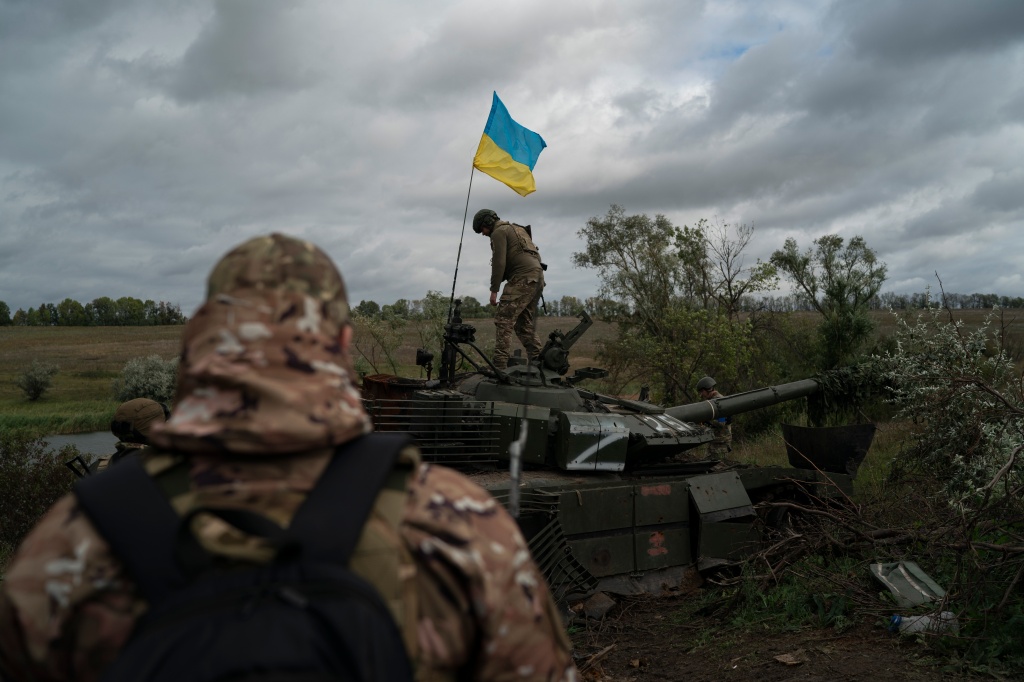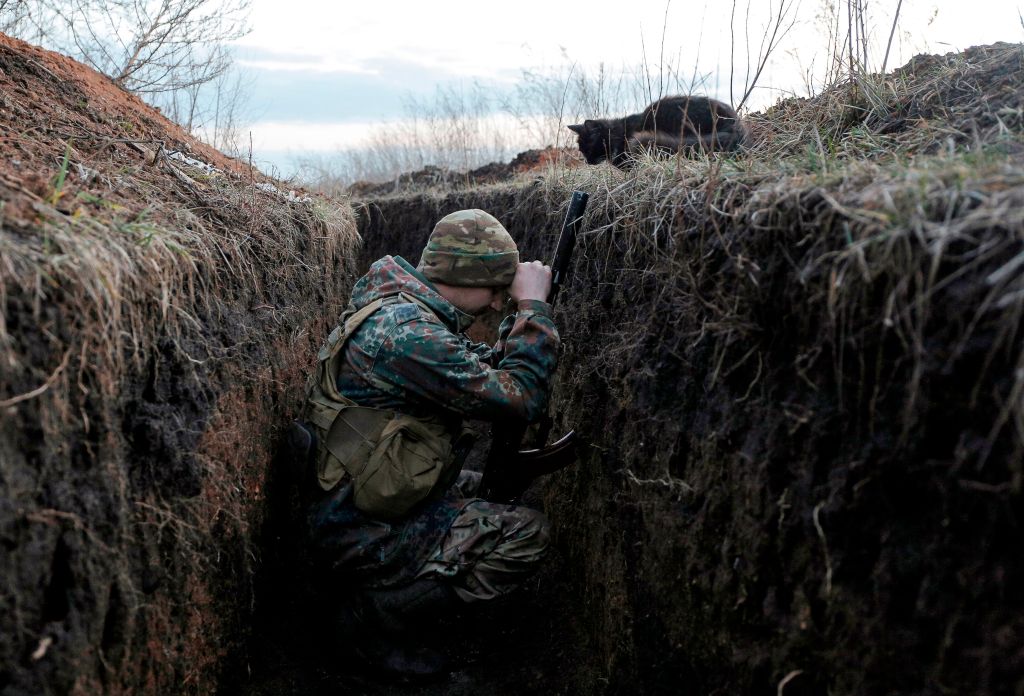Life expectancy on frontline in Ukraine ‘4 hours’: soldier
The average life expectancy for a soldier fighting on the frontlines in the eastern Ukrainian city of Bakhmut is just four hours, according to an American who is fighting against Russian forces in the Donbas.
Former US Marine Troy Offenbecker detailed the intense fighting, some of the deadliest since Russia launched its invasion a year ago, in an interview with ABC News.
Fighting in the war-torn city of Bakhmut has gotten so gory it’s been dubbed “the meat grinder,” Offenbecker told the outlet.
“It’s been pretty bad on the ground,” he said.
“A lot of casualties. The life expectancy is around four hours on the frontline.”
The struggle to gain control of the eastern city, which had a prewar population of about 73,000, has been the most persistent fight within the war. In recent weeks, Russian forces have strengthened their attacks in eastern and southern Ukraine ahead of an anticipated large-scale offensive to earn a Russian victory.
Russian forces have encircled the “fortress Bakhmut” for months, as the city is important to Kyiv because it’s located next to a supply route, but have been met with fierce opposition from Ukrainian troops.


Offenbecker, who fights with the International Legion, a military unit of foreign fighters, said the artillery is “nonstop.”
“[Russia] have maybe run into a shortage of shells lately, but the past couple of weeks it’s been nonstop. All day and night,” he said.
“With the amount of shelling, the amount of armor that they’ve brought in, I think it’s started,” he said. “It’s just hard because the winter hasn’t been as cold as it usually is. They can’t move as much armor as I’m sure they would like to with the ground.”


Even as some of the bloodiest battles have been centered around Bakhmut, there are still some civilian families in the city, according to Offenbecker.
“A lot of these families are poor,” he said. “They don’t have anywhere to go … even if they wanted to. So the reality is there still are a lot of civilians that are stuck in the middle of this.”
Read the full article Here


